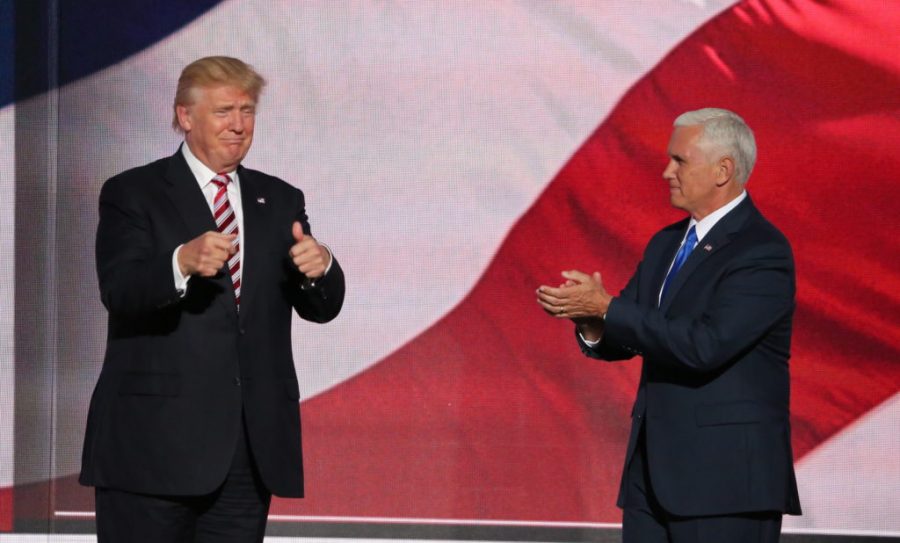Across the nation, millions of politically active citizens have cast their ballots early. Posted in front of coffee shops and food trucks like sentient gargoyles are dozens of volunteers, urgently pushing for others to register to vote. By the middle of this week, millions of Americans will have participated in a process established by our brave forefathers hundreds of years ago. Yet within the underpinnings of this political cycle, there are thousands of journalists silently dreading Nov. 9 — myself included.
Over the course of the last year, politics have become a pseudo-obsession for American citizens. Seemingly everyone has memorized a set of Donald Trump quotes, preparing for lively banter during breaks at the water cooler. Regardless of political affiliation, both major party candidates are polling at historically unfavorable rates. Instead of stories about living conditions in Aleppo, citizens are fed content of presidential nominees asking, “What is Aleppo?”
Journalists, trained to pick up on these subtle cravings, have met demands for political coverage, largely to their own detriment.
Ordinarily, the conclusion of the presidential election is cause for celebration, especially in swing states like Ohio and Florida. However, when this election cycle finally ends on Nov. 8, the nation will be thrown into a state of unprecedented withdrawal. While Trump and his battalion of highly-educated supporters will likely stage a few protests, his endless stream of commentary will eventually cease. Hillary Clinton will escape impeding investigations about her emails, and a sense of normalcy will descend upon the United States. For many, it will resemble the feeling of waking up from a nightmare in which one needed to educate Gary Johnson about foreign affairs.
This general lack of national campaigning will be quite disastrous for the journalists who have based their careers on the current presidential race. Each day, Trump has gifted the media with a sea of statements, each requiring a full panel of staff to comprehend. Culminating over the last year, many have simply grown accustomed to the daily source of content produced by the Republican nominee. As he fades from the national spotlight, what will the media cover? Sure, there are plenty of global occurrences that need coverage. But what’s more interesting: a story about rising EpiPen costs, or Trump accusing Bill Clinton of abusing women? Worker’s rights violations in Congo, or Hillary Clinton’s campaign receiving questions prior to primary debates? These are the stories that have captivated Americans nationwide.
When the election ends, this booming industry will come to a halt.
Which is particularly concerning for journalists, who are left wondering what we even wrote about before Trump, is that if Hillary Clinton becomes president, there will likely be a few months of stories to cover. Fresh Supreme Court justices will be appointed, and a few healthcare bills will likely be passed. But that isn’t enough to get America its political news fix; rather, it’s only satisfactory for those who are tired of excitement. In other words, it’ll be Mitch McConnell, current Senate Majority Leader, exemplifying the theme of the year to come:
The year of the turtle, America. That’s what we’re facing.
So where do we go from here? With so much yet to be decided, there are three possible scenarios. Let me break them down for you:
Scenario one: Hillary Clinton wins the presidency, which is what many are currently predicting. If this occurs, one can expect that politics will continue as usual. Judge Merrick Garland will be appointed to the Supreme Court, and President Clinton will attempt to reform healthcare.
Scenario two: Evan McMullin wins Utah. Refer to Scenario 1.
Scenario three: Trump wins the election. If this happens, contact that one crazy coworker of yours and ask if they have extra space in their fallout shelter. America will become more monochromatic than ever, aside from the state-sponsored spray-tan program that will be initiated by President Trump.
Clearly, in the interest of journalists nationwide, scenario 3 is the only option that can be considered preferable.
letters@chronicle.utah.edu


